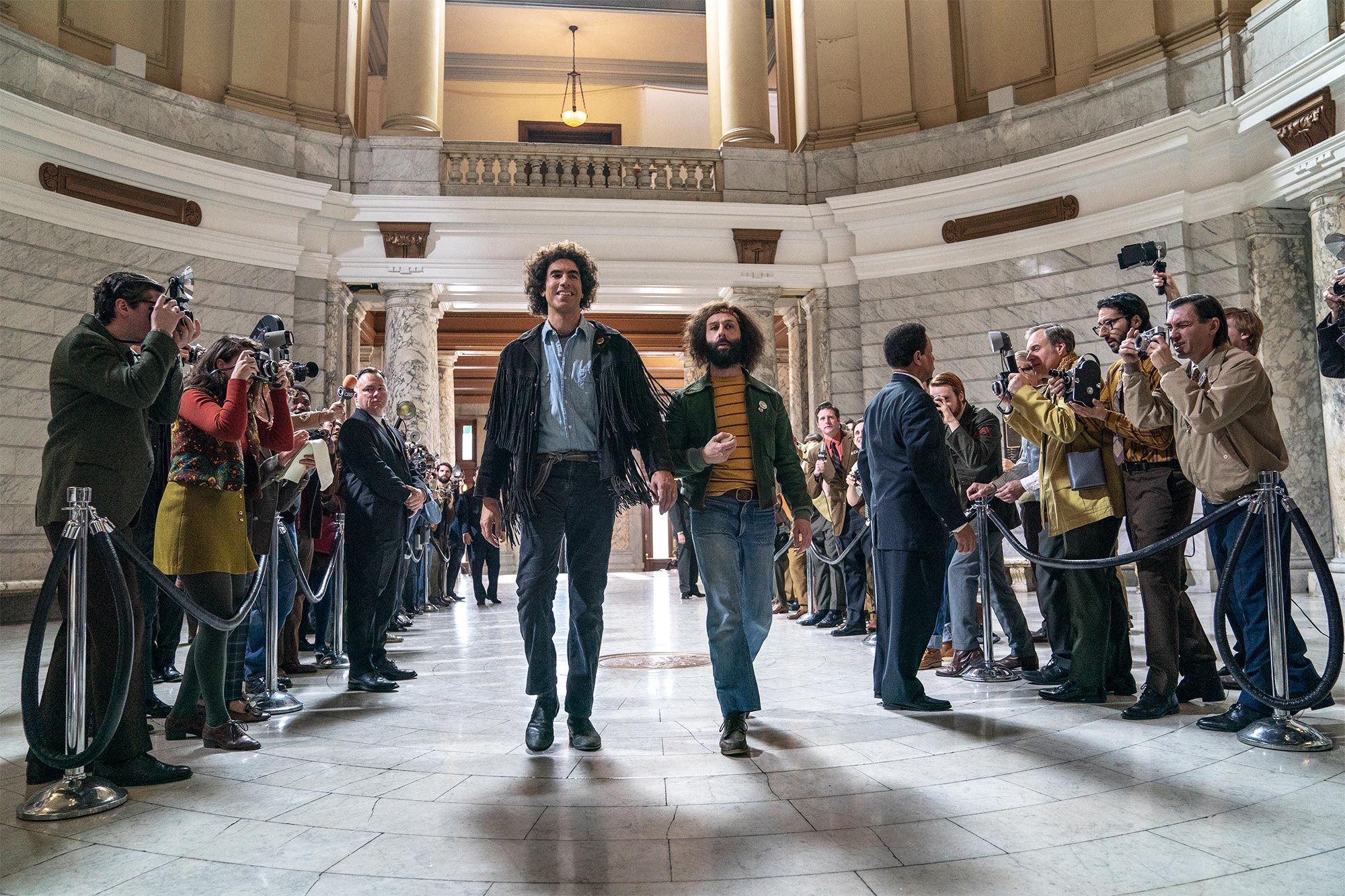Great directors learn from their mistakes. Aaron Sorkin was already a great writer by the time he decided to direct Molly’s Game. While an excellently penned first feature, Sorkin showed his reliance on speechifying to overlook serious flaws in that movie’s storytelling. Sorkin eliminates that issue here, mostly because the script and story already happened, and the sides with respect to history have been decided, so all Sorkin has to do, is make it fun and interesting, which helps him overcome some of his crutches.
The Chicago 7, er 8, are civil rights activist leaders who came to Chicago to protest the nomination of Hubert Humphrey by the Democratic Party, because of the way Humphrey was going to escalate the war in Vietnam. This disparate group includes people ranging from college Democrat Tom Hayden (Eddie Redmayne), hippie enthusiasts Jerry Rubin (Jeremy Strong) and Abbie Hoffman (Sacha Baron Cohen), and Black Panther member Bobby Seale (Yahya Abdul-Mateen II). The newly elected Nixon administration, seeking an opportunity to punish political dissent, enlists Richard Schulz (Joseph Gordon-Levitt) to put these men behind bars for a long time. The 8 men stand trial, represented by various attorneys (including William Kunstler, played by Mark Rylance) overseen by Julius Hoffman (Frank Langella), no relation to Abbie…though he might amusingly disagree.
Aaron Sorkin’s challenge with his 2nd feature isn’t political speechifying ironically; being blessed with so many voices, there’s simply no time to monologue excessively, as someone would interrupt someone else. No. Instead, Sorkin’s challenge is finding the right tone switching. Much of what’s on trial here is really important, heavy stuff. But in that heaviness, there’s all sorts of chances to find a host of biting, acid tongued humor. Sorkin uses that brilliant writer’s mind to find that balance pretty effectively, usually drawing us in with the farce, then pulling the rug from under us when we realize that “farce” has real life implications. To help with the transitions, Sorkin employs an effective use of flashbacking, feeding us pieces of what happened in Chicago to cause these gentlemen to get arrested, helping turn the Chicago 7 into a mystery thriller as well as a legal procedural.
Having been in and around a few protests now, I know what drew Sorkin to this story besides the clearly fun Hoffman dialogue the minute he uses lots of BLM protest slogans by the Vietnam protesters. The Trial of the Chicago 7 feels like it’s in constant communication with past and present at the trial itself, showcasing all the roadblocks in place when a common person who looks different chooses to speak truth to power. The uphill fight through the justice system consists of a “jury of our peers” under constant siege, excessive defendants to let go of a few minor players to as to let the government punish the big ones, and a judge who does NOT seem as impartial as he proclaims to be. And that’s just for the white defendants. Poor Bobby Seale doesn’t even get representation or the ability to represent himself at his own trial, repeatedly found in contempt for bringing this up, culminating in one of the movie’s most powerful sequences, though Sorkin glosses over this moment and character a little too quickly for my taste. Even outside of the courtroom, there’s lots of compelling debates over the first amendment rights, government overreach, how to bring about effective change, etc. I’ve first hand participated in conversations like the one Aaron Sorkin shows us in his film, proving that the director can use his gift for gab for something more than just pure entertainment.
Aaron Sorkin learned from his mistakes. I just wish America would take his lead, and maybe pay a little extra attention to The Trial of the Chicago 7. I sure wish Chicago had, because moments like these have plagued city politicians ever since. I think the state has had more governors arrested than not, yikes!

